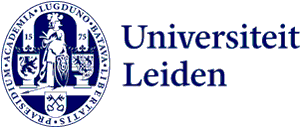
Speckmann Awards 2022 for Simay Çetin, Nova Folkersma, Marta Mas Castella, Iris Molenaar and Emma van der Plas
Alumna Simay Çetin received the award for her Master thesis: ‘Interpreting Culture through Embodied Practice: An anthropological study of sexuality among Dutch Women with Turkish Migrant backgrounds.’ Nova, Marta, Iris and Emma were awarded for their Fieldwork NL report: ‘Butter Brea en griene tsiis wat’datnet sizze kin in gjin oprjochte Fries.’ The Speckmann awards are granted to the best reports for ethnographic fieldwork. The ceremony took place on 5 April 2022.
Going above and beyond
The jury, consisting of Metje Postma and Andrew Littlejohn praised Simay Çetin for her excellent fieldwork that is going above and beyond what is expected at Master’s level. Çetin not only conducted extensive interviews with Turkish-Dutch women, recruited through dating sites and applications. She also participated in and analysed digital communications and discussions on diverse social media platforms. Alongside methodological sophistication, the resulting thesis demonstrates great ethical sensitivity regarding the nature of her research and choices necessary to protect her participants.
Sexuality in multicultural contexts
In her brilliant thesis Çetin demonstrates the power of ethnography to challenge taken-for-granted ideas and reveal new perspectives on issues of profound societal importance. Simay explored how young Dutch women of Turkish (and Egyptian) descent negotiate their sexuality and sexual activities in multicultural contexts. Her research examined how women decide on, and feel about, their (first) sexual experiences, as well as how they explore and negotiate sexual identities with parents and friends. In January Simay Çetin was also rewarded the FSW Master’s Thesis Prize 2021.
Policy recommendations
Although not explicitly framed as a policy-oriented research project, Simay has already provided policy recommendations at a conference where she presented her initial findings. Her work provides important counterpoints to normative discourses about immigrant integration as well as concrete suggestions on how to help young women navigate a minority experience by having access to comprehensive sexual education from other individuals with real-life experience.
Language and Identity
The Fieldwork NL report ‘Butter Brea en griene tsiis wat’datnet sizze kin in gjin oprjochte Fries’, produced by Bachelor students Nova Folkersma, Marta Mas Castella, Iris Molenaar and Emma van der Plas examined how the use—and preservation—of the Frisian language relates to debates over and experiences of Frisian identity within the contemporary “Dutch” context. It also asks how language interacts with other aspects of Frisian social and cultural life seen as relevant for being regarded a “real Frisian”.
Out of 8 reports considered good enough to be potential candidates for the prize, and since all of them had great strengths, non were quite as deserving as the winner who answered to all criteria for an excellent research-report. The jury: ‘We were very happily surprised by the depth of research, the extensive data, the excellent quality of the argumentation, and the engrossing narrative that the authors produced.’
The authors focused not only on language, but also its relation to and positioning vis-à-vis other cultural features their participants identified as a Frisian. Examples include the pride of and attachment to Fryslan as a Province, specific characteristics and experiences of the Frisians as a people, and the idea of Frisian identity itself. Also the research shows how self-identified Frisians, as members of an endangered language group, share sympathy and an understanding for other minority language groups and work to preserve their language.
